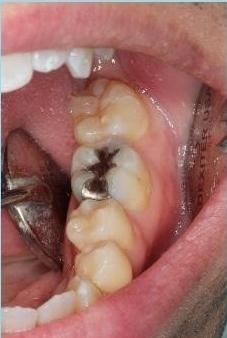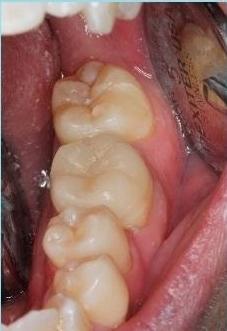
Cracked Tooth Repair
Did you know that tooth enamel is stronger than bone? Each day your teeth withstand literally tons of pressure. Sometimes, however, a tooth will become cracked. There are a variety of factors that can cause this. Though your permanent teeth are meant to last your entire lifetime, this is not always the case. Chewing on hard objects, genetics, personal habits, foods you eat and medications are some of the causes of cracked teeth. Should one of your teeth crack, it is not necessarily lost. Cracked tooth repair involves addressing and treating dental cracks, which can occur due to factors such as trauma, biting on hard objects, or natural wear and tear. The specific treatment for a cracked tooth depends on the severity, location, and extent of the crack. Here is an overview of common cracked tooth repair options:

Dental bonding is a minimally invasive procedure in which a tooth-colored resin material is applied to the cracked tooth. The resin is sculpted and shaped to restore the tooth's appearance and function. Bonding is typically suitable for small, superficial cracks.
 If the crack extends deep into the tooth and reaches the pulp chamber where the nerves and blood vessels are located, root canal therapy may be necessary. During this procedure, the infected or damaged pulp is removed, and the root canal is cleaned, filled, and sealed. A crown is often placed afterward to reinforce the tooth structure.
If the crack extends deep into the tooth and reaches the pulp chamber where the nerves and blood vessels are located, root canal therapy may be necessary. During this procedure, the infected or damaged pulp is removed, and the root canal is cleaned, filled, and sealed. A crown is often placed afterward to reinforce the tooth structure.Meet Our Doctor:

Dr. Amy Iglesias
Dentist
Dr. Iglesias received her Doctorate at the Tufts University School of Dental Medicine in Boston, MA. Her mission in dentistry is to combine skill, integrity, and empathy to make a meaningful difference in her patient’s lives. One smile at a time. Delivering ethical, gentle dentistry that improves health, confidence, and quality of life. Dr. Iglesias is an active member ...

